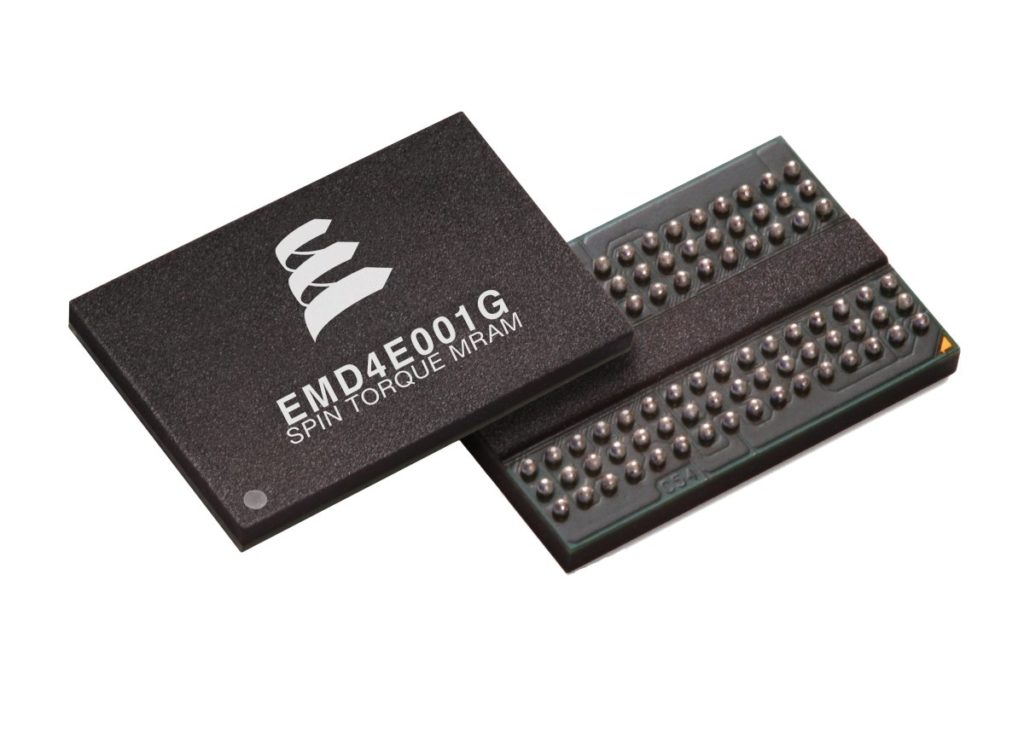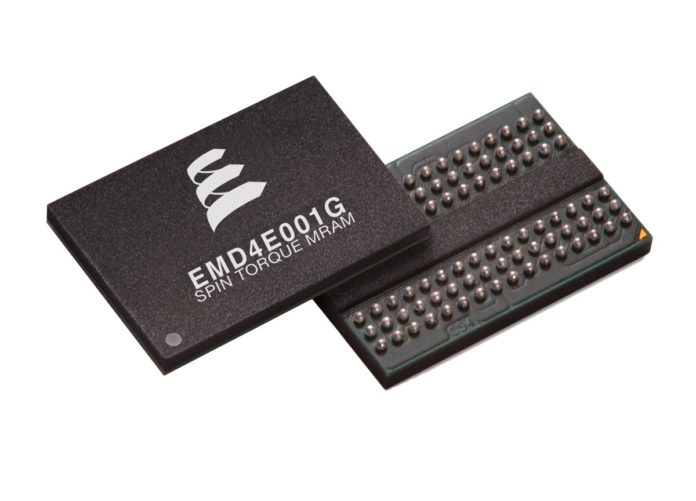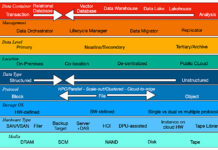Everspin, the non-volatile memory maker, has started pilot production of 1Gbit STT-MRAM components.
EverSpin’s spin torque transfer magnetoresistive RAM (STT-MRAM) offers higher write and read speeds than RAM but is non-volatile.
The company is targeting applications in data centres where high-performance persistence is critical in delivering protection against power loss. However, STT-MRAM may be too costly to compete with other non-volatile memory chips.
Everspin’s 40nm 256-megabit STT-MRAM product has been in volume production for more than a year and is used by IBM in its FlashSystem 9100 and Storwise V7000 systems.

As Blocks & Files has noted previously, STT-MRAM may be faster than competing technologies but high manufacturing costs make it difficult to justify on price-performance grounds. This is a moot point for us but an existential issue for Everspin to tackle.
Everspin has not disclosed costs for the new 28nm 1Gbit components, so it is unclear if the higher density from a smaller production process has helped to address this.
In a press statement today, Everspin CEO Kevin Conley said 1Gbit STT-MRAM was a milestone on the way to larger market opportunities.
“We are also pleased that progress with both customer qualification and yield maturity continues to be on track with volume production expected to start in the third quarter,” he added.
As well as offering higher capacity, the 1Gbit parts are available in 8-bit and 16-bit DDR4 compatible interface versions, whereas the 256-megabit chip was compatible with DDR3.
Everspin said its chips use JEDEC-like interfaces with some modifications to take advantage of the persistence from MRAM technology which performs like a persistent DRAM but with no refresh cycle required.








